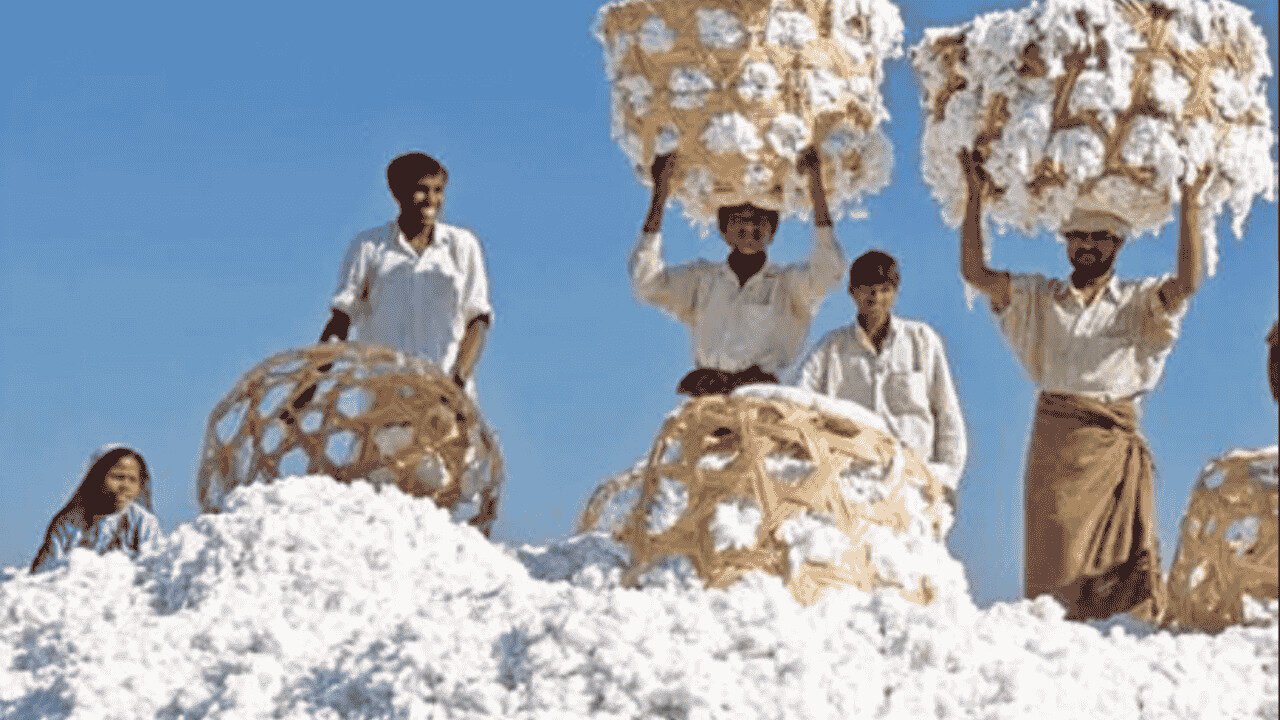By Azeem Ahmed
Pakistan has a chance to reclaim its position in the global cotton market, especially as demand rises and organic cotton becomes more popular, said Prof. Dr. Usman Mustafa, former director at the Pakistan Institute of Development Economics.
“International markets like the US, China, and Bangladesh offer big opportunities. Bangladesh imports cotton for its garment industry, and the US has now placed tariffs on Indian textiles, which gives Pakistan an advantage,” he told this reporter.
Cotton is important for Pakistan’s foreign exchange and for poor farmers who depend on it. However, its role has declined because of competition from sugar crops. Once a major part of Pakistan’s agriculture, cotton production has dropped from over 11 million bales to just 4.5 million.
Prof. Usman said a key reason for the decline is the smuggling of uncertified cotton seeds. These seeds have caused widespread pest problems, including whitefly infestations, which hurt yields.
“Using these seeds brought serious insect problems, and production suffered,” he explained.
He stressed that seed development is critical. Both private and public sectors need to produce certified, local seeds to replace harmful smuggled varieties. “Seed is the key — for better yield, for resilience, for everything,” he said.
Research and development in agriculture is also important, especially in improving cotton varieties to resist diseases and adapt to changing climates. “Without genes, there can be no green,” he noted.
Balochistan has untapped potential for organic cotton because its low humidity reduces the need for pesticides. Cotton grown there could be marketed as pesticide-free, especially for children’s clothing, which could fetch higher prices internationally.
He also suggested bringing back progressive farmer models. In this system, high-performing farmers get support in seed production and serve as examples for others.
Prof. Usman said it is a misconception that farmers avoid new technology. The real problem is the system itself. In the same village, one farmer might get 20 kilograms of cotton while another gets 80, just because some farmers get better support and resources.
To boost cotton production, Pakistan needs better policies that truly support farmers. Without this, the country risks weakening its economy.
He highlighted southern Punjab, including Multan, Bhakkar, and Dera Ghazi Khan, as traditional strongholds for cotton production.
Author Profile






